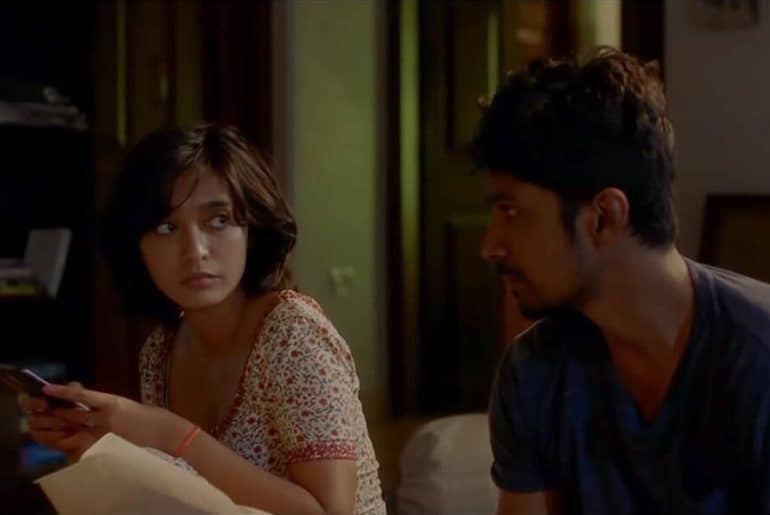Various student parties and organisation launched the protest at Gate No. 4 of the Arts Faculty building on the morning of 11th June.
Protesting against what they called a “faulty admission process”, groups like the Students’ Federation of India (SFI), All India Students’ Association (AISA), Pinjra Tod, Parivartankami Chhatra Sangathan (Pachhas), Krantikari Yuva Sangathan (KYS), Collective, and others raised demands related to the admission procedure and fee hikes.
All in all, eight such demands were raised. Those were:
- Reducing the registration fee for Other Backward Classes (OBC) students to INR 300 and apologising for the inconvenience caused;
- Reducing the registration fee for unreserved category students from INR 750 to INR 500;
- Refunding the extra fee to the students;
- Immediately resolving technical problems in the registration forms;
- Giving two days to applicants to make corrections to their forms after filling it up;
- Setting the entrance exam question papers in Hindi as well;
- Providing proper facilities at exam centres;
- Revoking the fee hike in Ramjas College and Bharati College.
In a memorandum submitted to the Dean of Students’ Welfare (DSW) that stated the dissimilar fees requirements of OBC and Economically Weaker Sections (EWS) categories, the protesting organisations argued that even though the “OBC (Non-Creamy Layer) category have an income cut-off not very different from the newly introduced EWS General Category”, yet there was a “massive difference in admission fees” between both categories.
“Besides the fee hike in the entrance form, OBC category students are being made to pay the same amount as General category students, while the EWS category has been clubbed with other reserved categories for the subsidised fees,” the memorandum read. It further stated that this was “completely over-riding the logic of reservation for OBC communities, which is (based on) social and economic backwardness. This is extremely arbitrary and does not reflect the constitutional consideration behind reservation of seats for OBC students.”
The University of Delhi (DU) had set different fees, for both registration and for entrance exams – wherever applicable – that was to be paid by different categories of students. The registration fee for the undergraduate courses is INR 250 for unreserved and OBC categories and INR 100 for students falling under reservation (Scheduled Castes/Scheduled Tribes/Persons with Disability/EWS). The ‘additional registration fee for each entrance-based course’ for students belonging to the unreserved and the OBC categories was set at INR 750, while that for reserved category students was INR 300.
The same distinction of INR 750 and INR 300 also applies to the application fees for postgraduate, MPhil, and PhD admissions. All these are non-refundable, as mentioned in the three ‘Bulletin of Information’ documents released by the University.
Speaking to Amarjeet Kumar Singh of AISA, we learnt that upon meeting the DSW, the protesters asked the Dean about the reason for the different fee requirements of OBC and EWS students. According to Singh, questions were posed to the Dean that given that there were three bases of reservation given to the OBC – social, educational and economic backwardness – and the EWS reservation, on the other hand, was based only on economic backwardness, what was the reason for different fees requirements from the two categories.
We were told by Singh and SFI Delhi’s Vice President, Sumit Kataria, that the Dean allegedly provided wrong information about the reservation criteria to the protesting students. Having checked the facts, the students demanded to meet the Dean again but were refused, Singh told us. Following this, the protesters sat on a dharna outside the Dean’s office. Singh said that when they met the Dean again and questioned him about the alleged misinformation, “unke pas koi jawab nahi tha” – he did not have any answer.
According to Singh, the Dean told the students that some response over their demands would be taken by Monday. However, the students want to see action by 13th June as some student organisations had submitted similar memoranda in their individual capacities previously as well; AISA did it on 7th June, while SFI had submitted theirs on 8th June.
Singh also said, “Yadi 13 tareekh tak koi response nahi aata hai, to agle din yaani 14 tareekh ko hum log ek bada protest nikalenge aur protest ka form badal bhi sakta hai” – if a response doesn’t come till the 13th, then we will organise a big protest on the 14th (June) and the form of protest could be different too. When we asked him what the “different form of protest” implied, he said, “I can’t describe the form of protest. But the protest will be on 14th of June and also different from 11th June.” “But it won’t be a violent protest, right?” was our question. To this, Singh said, “It is obvious that we use democratic means of protest.”
Feature Image Credits: Amarjeet Kumar Singh of AISA
Prateek Pankaj









